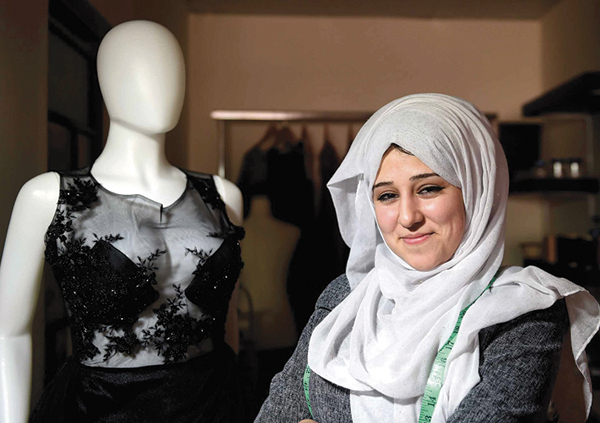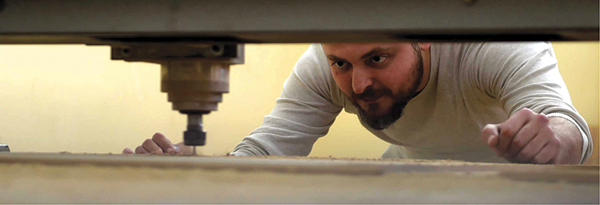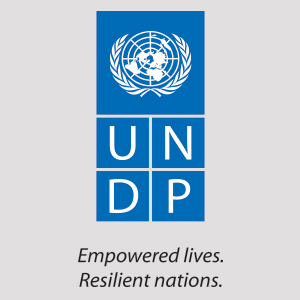
The Maharat youth economic empowerment project supports young graduates from Gaza and was designed by UNDP in partnership with the Palestinian Federation of Industries (PFI), and the University College of Applied Sciences, with funding from the Islamic Development Bank. The project’s approach to economic empowerment is based on building the capacities of a group of young people in the areas of administration, finance, and project management and technical skills, and linking them with the industrial job market.
Four industrial sectors were targeted following a thorough analysis of their human-resource needs: the garment and textiles industry; the wood industry; the paper industry; and the aluminum industry. More than 3,000 graduates from various age groups and residential areas in the Gaza Strip applied for the project. Once the profiles and applications had been assessed, the number of eligible applicants was reduced to 350 young men and women who received intensive training in factories, workshops, and university and specialized college laboratories. They were also subjected to a practical technical program in the targeted sectors, which included designing home furniture for the wood industry; designing aluminum “composite” facades, domes, and kitchens; designing, printing, packaging, and designing of 3-D molds for the paper industry; and fashion design that meets clothing requirements for the garment and textile industries.
At the end of the project, more than 32 specialized companies were established. These companies support the industrial sector, in particular workshops and factories, and contribute to developing and introducing new and innovative product designs. This promotes sales and keeps pace with the global market in the targeted industrial sectors.
In her small office inside an industrial incubator, Maha Awad from Gaza is working diligently to develop her personal project and entering new markets with dresses designed for weddings and special occasions.

The Roqiy project is one of the entrepreneurial projects supported by Maharat and implemented by the Palestinian Federation of Industries, with funding from the Islamic Development Bank through UNDP. The project aims to introduce modern designs into the field of fashion. Maha hopes to increase her success in fashion design and target new clients and sectors.
Maha describes her experience: “I applied for Maharat and was competing for funding to be able to realize my dream of starting my own business – Roqiy. I worked hard for this opportunity, and the training I received at Maharat helped improve my business and technical skills and enabled me to create my project.
Roqiy has gained a prominent name and reputation in fashion design for wedding dresses among a wide variety of clients in Gaza. Roqiy now operates under its independent name and participates in fashion shows, with ambitions to make further progress. I want to reach the international market with my modern designs in the future.”
» The Maharat project is the first of its kind in the State of Palestine to establish a youth empowerment program based on real market needs identified through research. The strategy is anticipated to bolster the development of local industry and the competitiveness of the national economy. The project came to life as part of UNDP’s Productive Families Economic Empowerment Programme (DEEP) funded collectively by Arab and Islamic funds, and the Gulf Cooperation Council, through the Islamic Development Bank, in addition to the governments of Sweden and Japan, Swiss Cooperation, and UNDP. Since its establishment, the program has offered economic empowerment to more than 22,000 Palestinian families and provided jobs for more than 8,000 young men and women under the leadership of the Ministry of Social Development, in partnership with the Ministry of Finance and Planning, the Ministry of Labor, and the Islamic Development Bank.


